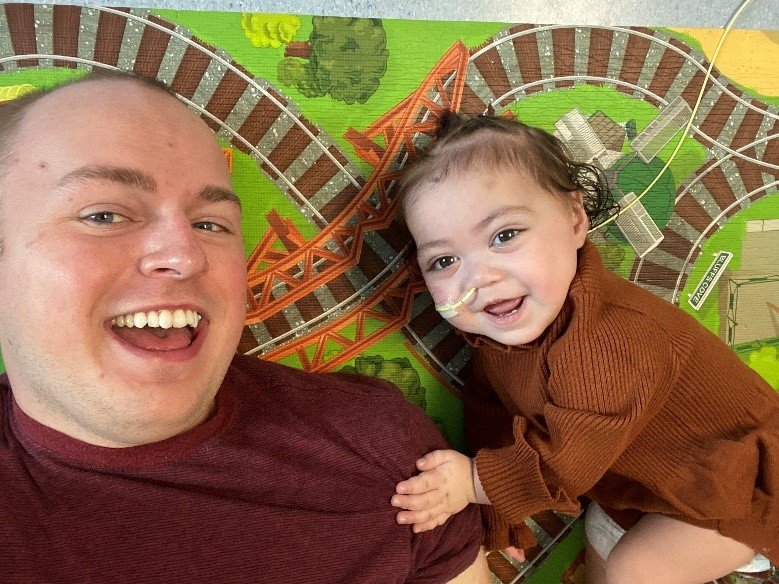
TOOLS & RESOURCES
Toolkits, Change Packages, & Interventions
First Year of Life Portfolio
HOW TO USE TOOLKITS GUIDE
How To Use Toolkits is a short guide to assist your pediatric cardiology center to achieve your improvement goals related to First Year of Life improvement work. Thinking through each section outlined below will position quality improvement teams to maximize the learnings shared within each toolkit.
UNPLANNED REINTERVENTIONS TOOLKIT
(SV-ONE MEMBERS ONLY)
As a reminder, all data information is confidential, intended solely for the knowledge and use of SV-ONE members, and shall not be disclosed or shared. SV-ONE members have a responsibility to maintain patient privacy and the confidentiality of all SV-ONE member centers. Any disclosure, copying, distribution, or use of this information is strictly prohibited.
The Unplanned Reintervention toolkit aims to decrease the clinical impact of unplanned reinterventions after Stage 1. We believe that the early identification of patients who may require unplanned reintervention can improve the associated survival and reduce morbidity associated with these procedures. This toolkit will guide centers in developing and utilizing planned post-operative evaluations and common clinical post-operative milestones to help identify patients that are at higher risk for unplanned reinterventions. The toolkit will provide examples to help centers determine the next steps for patients who are not meeting clinical milestones.
After viewing the modules and supplemental materials, centers can implement this toolkit through following sequential steps to ensure care is standardized and optimized.
Due to the inclusion of collaborative data, the toolkit is located on the SV-ONE SharePoint site and is only accessible to SV-ONE member centers. After you click the Toolkit link on the SV-ONE website you will automatically be re-directed into SharePoint at which point you will need to sign in. Contact info@svone.org for assistance if you have any issues signing in to the SharePoint site to access the toolkit.
ORAL FEEDS PRIOR TO STAGE 1 SURGERY TOOLKIT
The Oral Feeds Prior to Stage 1 Surgery Toolkit: The Preoperative Feeding Project was established to improve the quality of life for infants with single ventricle heart disease and their families by increasing opportunities for nutritional and neurodevelopmental oral feeding experiences prior to Stage I surgical palliation. According to data from the NPC-QIC in 2021, 54% of patients with single ventricle disease receive enteral feeding experiences prior to Stage I surgical palliation. Of the 56 centers contributing data, over 90% reported allowing pre-operative oral feeding, up from 25% in 2016. The Oral Feeds Prior to Stage 1 Surgery Toolkit is designed to provide expert guidance on identifying candidates for preoperative feeding and instituting a preoperative feeding protocol.
OPTIMIZING NEURODEVELOPMENT & SUPPORTING INFANT GROSS MOTOR OUTCOMES TOOLKIT
This toolkit was created to share intervention strategies to promote optimal gross motor outcomes and describes supportive developmental care practices for both hospital and home settings. The target audience for this toolkit is interdisciplinary professionals and parents caring for infants with single ventricle CHD. The information in this toolkit can also be shared with infants’ medical home providers, early intervention professionals, and key stakeholders, such as hospital administrators.
TUBE WEANING TOOLKIT
Supplemental nutrition delivered via feeding tube is often unavoidable in the journey of a patient with single ventricle physiology, which can be provided both as the sole source of nutrition or as a supplement to oral feedings. One of the goals was been to increase the percentage of patients weaned from feeding tube by their first birthday.
To help meet this goal, parents and clinicians co-developed the Tube Weaning Toolkit, which is a concise and practical resource that provides education and expert guidance. Toolkits focus on a specific condition, care processes that provide background material, summary of evidence and best practices, as well as specific tools, strategies, and examples that can be applied to improvement work. In this instance, on the tube weaning process.
UPDATED INTERSTAGE CHANGE PACKAGE
The “Interstage” is the time period, typically 4-6 months, between the first surgical palliation (SP1 – typically a Norwood procedure) and the second (Glenn) operation. It is historically a time of risk for HLHS infants.
Since the Collaborative’s inception, care centers and parent partners have worked together to improve care and outcomes during the Interstage period.
This change package outlines strategies for clinicians, parents and researchers to use as they begin or advance Interstage quality improvement (QI) efforts.
Physical Activity & Exercise
ACTIVE LIVING WITH FONTAN CIRCULATION CLINICIAN’S GUIDES
The Active Living with Fontan Circulation Clinician’s Guide resources were designed to empower healthcare providers with the information they need to understand use cases, content, and which care team members should be involved in the discussion for each section of the toolkit as you look to recommend tools and activities to your patients.
Webinars & QI Training
HEART UNIVERSITY WEBINARS
The National Pediatric Cardiology Quality Improvement Collaborative and the Fontan Outcomes Network were invited by Heart University to co-sponsor a yearlong webinar series for global learning and engagement to improve the care of patients with single ventricle physiology. Hosted by Heart University, the “Global Single Ventricle Learning Series” is a six-webinar collaboration between parents, physicians, and various Care Center team members taking place August 2020 through June 2021.
IHI OPEN SCHOOL
The Institute for Healthcare Improvement Open School features a robust collection of dozens of online improvement courses that are self-paced and available to all teams participating in SV-ONE. To access the courses, follow the steps outlined below.
Create an account through the IHI Portal.
Email Vicki Gall and let her know you have completed your registration. She will provide you with the access code and instructions to enroll in courses under Cardiac Networks United’s subscription.
Please reach out to info@svone.org with any questions.









